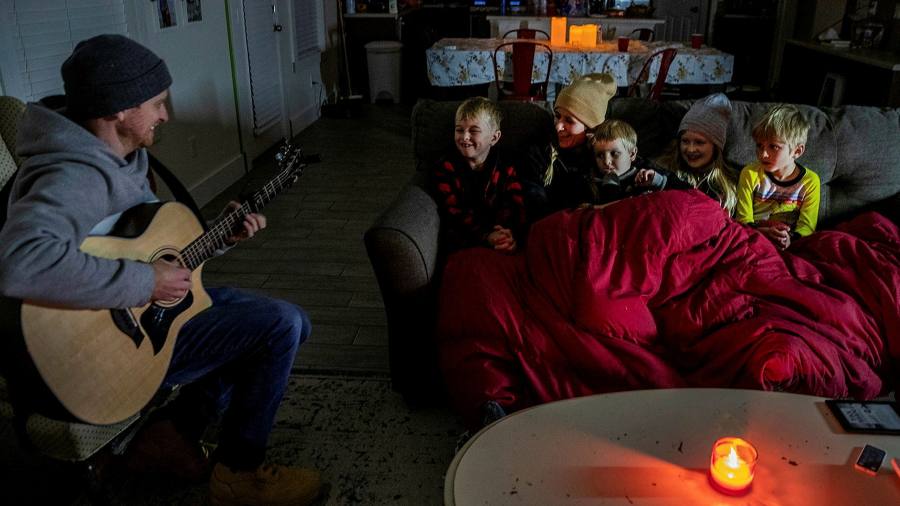[ad_1]
It would be a relief if the critics who blamed frozen wind turbines for last week’s crippling Texas power outage were correct. If they had been, it would be easy to understand why people in the second most populous US state had to sleep in their cars and burn belongings to stay warm after icy winter weather sent temperatures plunging to -18C. Unfortunately, early indications suggest the reasons are far more complicated.
It is true that the oil-rich state is a wind colossus. Though heavily reliant on natural gas, Texas leads the US in wind power generation and as far back as 2017 it had enough installed wind capacity to make it the world’s sixth biggest wind power if it were a country.
As a result, wind farms sometimes supply a large amount of Texans’ electricity, usually in the windier spring season. Last May, wind contributed a record 59 per cent of hourly power demand. But it is a different story in winter, when less wind is expected and planned for at peak times of need.
As this winter’s brutal freeze descended, some of the state’s wind turbines did seize up ahead of last week’s outage. But as the Arctic chill continued, other generators went offline too, including some of the natural gas plants that last year supplied 46 per cent of Texas’s power — twice the 23 per cent from wind farms.
Grid operators had anticipated record demand as the cold blast neared, but they did not expect so many plants to buckle under the strain. A full inquiry into what went wrong will take weeks to complete, but it is clear that wind farms were not the only problem. As a grid official said last Tuesday: “It appears that a lot of the generation that has gone offline today has been primarily due to issues on the natural gas system.â€Â
In addition, Texas is not called the Lone Star State for nothing. Unlike other states, it relies almost entirely on its own power grid. This has had benefits but also meant that, last week, it could not easily import electricity to make up for shortfalls. Another weakness of the Texas power system is a lack of incentives for companies to make the investments needed to ensure energy infrastructure can withstand extreme weather.
Twice weekly newsletter

Energy is the world’s indispensable business and Energy Source is its newsletter. Every Tuesday and Thursday, direct to your inbox, Energy Source brings you essential news, forward-thinking analysis and insider intelligence. Sign up here.
This is not a new problem. Federal regulators warned a decade ago, when another bitter cold front led to blackouts, that the state’s power plants might struggle in a repeat episode. As some commentators have noted, wind farms run in much icier places than Texas, from Sweden to Minnesota. But “winterising†them with cold weather kits can cost $150,000 per turbine.
In balmy Texas, “summerisation†of turbines and other power equipment, to ensure they can deal with heatwaves, might seem more obvious — which underlines another troubling aspect of last week’s blackouts. Scientists have warned for years that a changing climate would lead to more extreme and unpredictable weather. Texas has shown the dangers of underestimating the risks this poses for infrastructure.
Finally, it is clear that today’s power systems have one very reliable feature. Whenever blackouts strike, some critics will instantly blame renewables and the politicians who back them.
When the lights went out in California last summer, the Texas Republican Senator Ted Cruz tweeted that the Democrat-run state was “now unable to perform even basic functions of civilization, like having reliable electricityâ€. The senator’s Twitter feed was quieter when his home state went dark. This is good. Politicising something as vital and basic as electricity never made sense. Texas has just given a masterclass in why it should end.
[ad_2]
Source link






